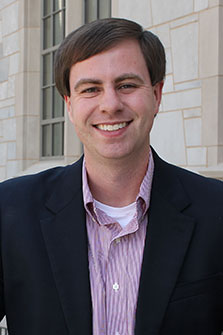Forum: Presidential Primaries

FORUM: MIDTERM ELECTIONS/HNRS 300VH
Mondays, 5:00-6:15 P.M., Spring 2024
Note: This is a one-credit course. Only register for one hour of course credit.
The use of presidential primaries and caucuses to decide a party’s nominee is a relatively new feature of the American political system. Gone are the days of party leaders and dignitaries meeting in a “smoke-filled room” to decide a nominee. Instead, we now have a complex system of statewide races that take place in the months leading up to each party’s national convention., which has had significant ramifications. Indeed, American voters now have much more control over the selection process than they did half a century ago. That said, viable candidates are almost now forced to officially start their campaigns many months in advance, building campaign staffs, interacting with donors, and yes, making the seemingly required summer trip to the Iowa State Fair. Voters have to learn about candidates on crowded debate stages, where it is often more important to create a viral moment instead of an honest debate of the issues. And of course, there is the decades long debate about whether it is fair for relatively small, homogenous states such as Iowa and New Hampshire to have so much influence over the process. The system is certainly much less elitist than it was in the past, but it is not without its flaws.
This spring’s Honors College Forum will focus on the forthcoming presidential primaries. The foundation of the course will be the discussion that takes place each week around a table in the Honors College wing of Gearhart Hall. The class will begin with a study of the presidency, focusing on the nature of the office and the process through which we elect our presidents every four years. Considering this election cycle includes an incumbent president, the class will also analyze President Biden's first term in office along with what will be the major policy issues being debated in the primaries. The class will also spend time focused on the Republican side, as we look at which GOP candidates, if any, will be able to defeat former President Donald Trump. Each student will also be assigned a to track throughout the semester, periodically reporting to the class about the state of the race. The course will end the semester with a preview of the 2024 general election campaign along with a discussion on possible reforms to how we select presidential nominees in the United States.
About Noah Pittman:
 Dr. Pittman earned a B.A. in political science, summa cum laude, from Rhodes College
in Memphis, Tenn., where he was active in a number of campus groups and won numerous
awards, among them the Yerger Hunt Clifton Scholarship for British Studies at Oxford,
the Seidman Award for Most Outstanding Senior Political Science Major, and the Algernon
Sydney Sullivan Award. During college, Dr. Pittman also interned with Congressman
Steve Cohen's Ninth District Office in Memphis and Harold Ford Jr.'s 2006 U.S. Senate
campaign. At the University of Arkansas, Dr. Pittman completed a M.Ed. in higher education
leadership and a Ph.D. in public policy. Dr. Pittman's dissertation on the Arkansas
Scholarship Lottery and its effects on college participation in the state earned him
the William Miller Dissertation Award from the university's public policy program.
Dr. Pittman currently serves on the executive committee of the Alpha of Arkansas Chapter
of Phi Beta Kappa and the Provost's Enrollment Advisory Committee. In recent years,
he has taught a number of honors courses related to campaigns and elections, the American
presidency, political partisanship, and higher education policy.
Dr. Pittman earned a B.A. in political science, summa cum laude, from Rhodes College
in Memphis, Tenn., where he was active in a number of campus groups and won numerous
awards, among them the Yerger Hunt Clifton Scholarship for British Studies at Oxford,
the Seidman Award for Most Outstanding Senior Political Science Major, and the Algernon
Sydney Sullivan Award. During college, Dr. Pittman also interned with Congressman
Steve Cohen's Ninth District Office in Memphis and Harold Ford Jr.'s 2006 U.S. Senate
campaign. At the University of Arkansas, Dr. Pittman completed a M.Ed. in higher education
leadership and a Ph.D. in public policy. Dr. Pittman's dissertation on the Arkansas
Scholarship Lottery and its effects on college participation in the state earned him
the William Miller Dissertation Award from the university's public policy program.
Dr. Pittman currently serves on the executive committee of the Alpha of Arkansas Chapter
of Phi Beta Kappa and the Provost's Enrollment Advisory Committee. In recent years,
he has taught a number of honors courses related to campaigns and elections, the American
presidency, political partisanship, and higher education policy.